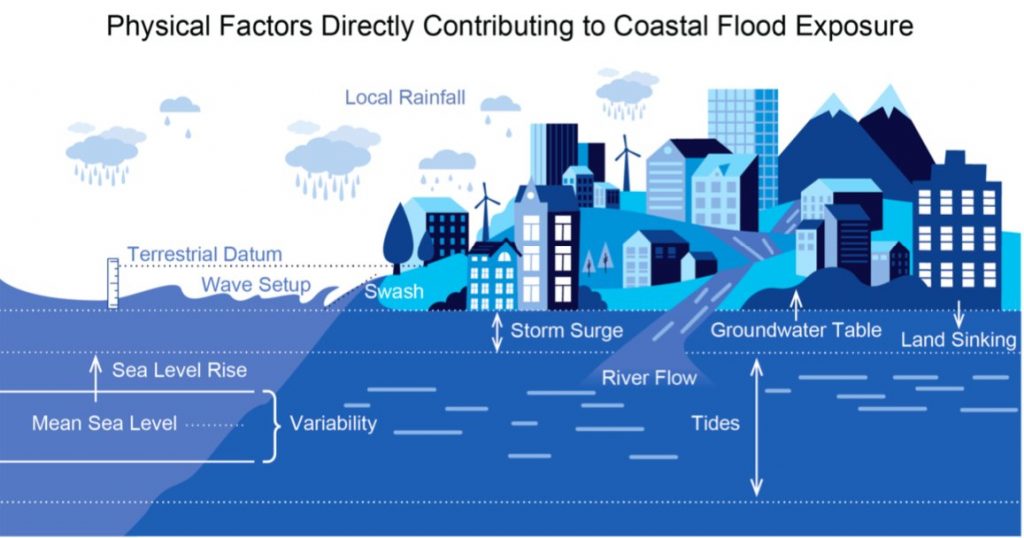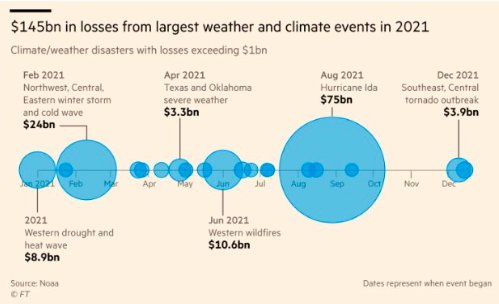The impact of climate change continues to inflict new costs on the American economy.
A new government study predicts that sea level along the U.S. coastline is poised to rise an average of 10 to 12 inches (0.25 – 0.30 meters) by 2050, according to a report by the National Oceanic and Atmospheric Administration
If so, that would equal the cumulative rise in sea levels over the past century. “Sea level rise driven by global climate change is a clear and present risk to the United States today and for the coming decades and centuries,” according to the report.

Millions at Risk
Tens of millions of Americans live in areas at risk from coastal flooding. Rising sea levels will continue to place at risk economies and critical infrastructure, the government warns.
The forecast draws on data from tidal readings, satellite imagery and climate models that predict changes in ice sheets in the polar regions.
Over the next 30 years, the probability of coastal flooding will rise markedly. The report sees instances of moderate or damaging flooding occurring more than 10 times as often as current levels on average.

Economic Hit
Climate change has been linked to extreme weather events this century. And for the US at least, they are proving expensive to respond to and clean up.
Last year the US experienced 20 severe natural disasters that inflicted damage costing more than $145 billion, according to the US National Oceanic and Atmospheric Administration (NOAA).
Temperatures in 2021 were slightly cooler than the previous two years, but that’s not much comfort. Global temperatures have been setting new records for the last seven years, owing to higher greenhouse gas emissions.
Photo Credit: Jose Moutinho via Flickr Creative Commons
Disclosure
This piece is provided as educational information only and is not intended to provide investment or other advice. This material is not to be construed as a recommendation or solicitation to buy or sell any security, financial product, instrument, or to participate in any particular trading strategy.



